This is part of a series of posts about the Nikon D5. The series starts here.
There are some places in the read noise vs ISO curves for the D5 wither there are suspicious-looking kinks. From previous work, I know that Sony does spatial filtering at high ISOs on some of their a7x cameras, with an eye towards reducing shadow noise.
Does the D5 do something similar?
I did a series of frequency analyses of some of the dark field images.
fs is the sampling frequency. These are all for the red raw plane of a 1000×1000 pixel central crop.
These are all quite flat, except for a hint of low frequency noise in some. Looks like Nikon isn’t resorting to spatial filtering trickery.
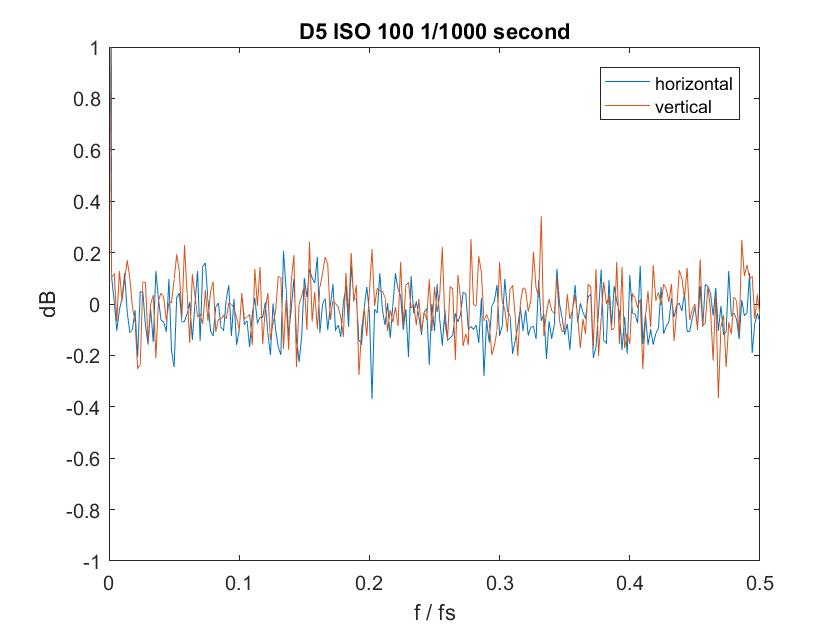
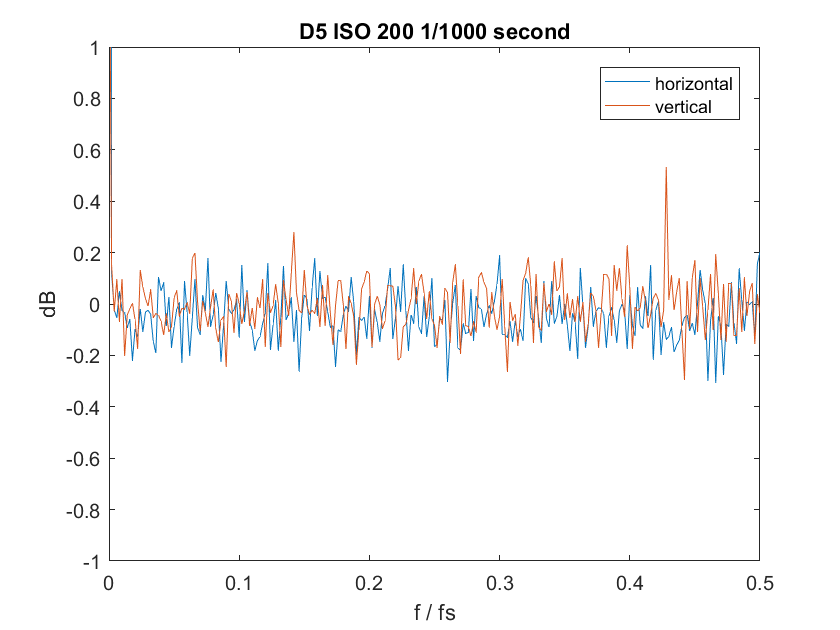
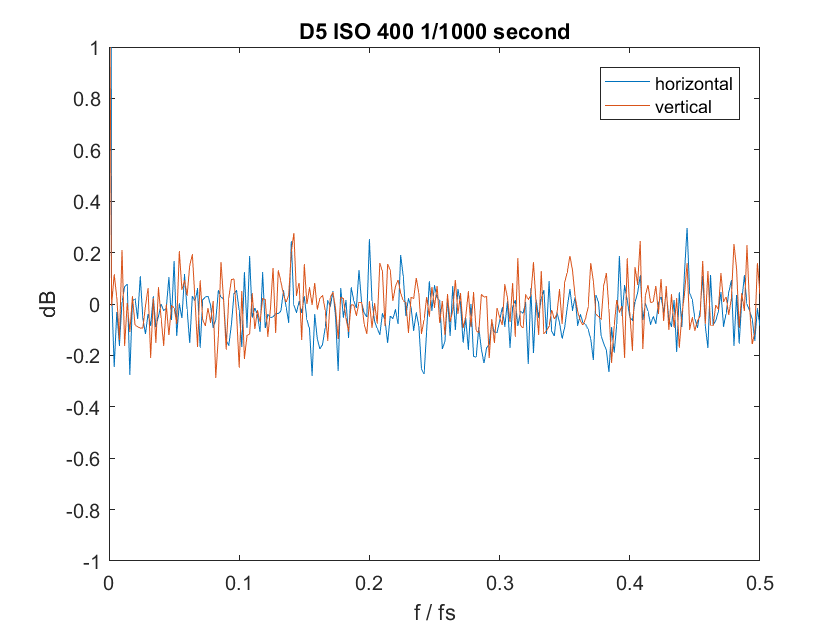
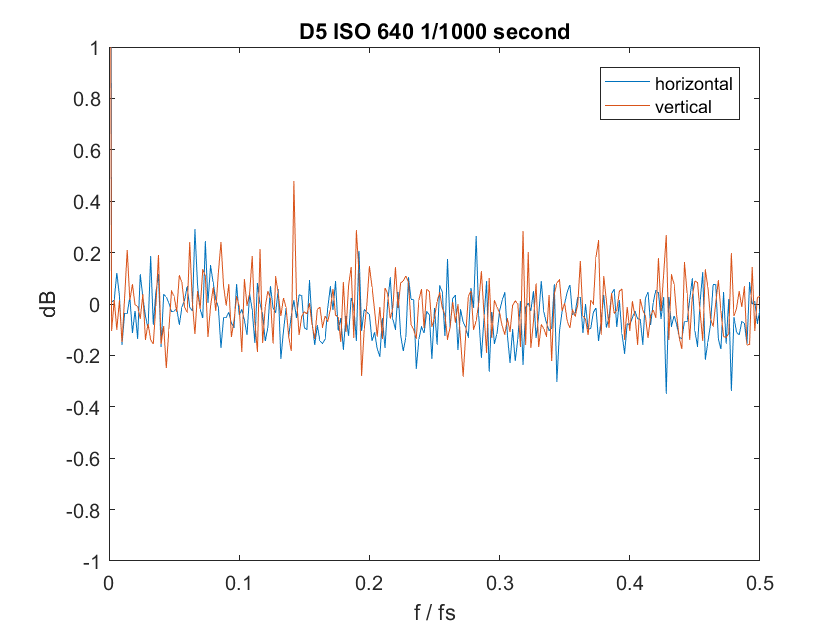
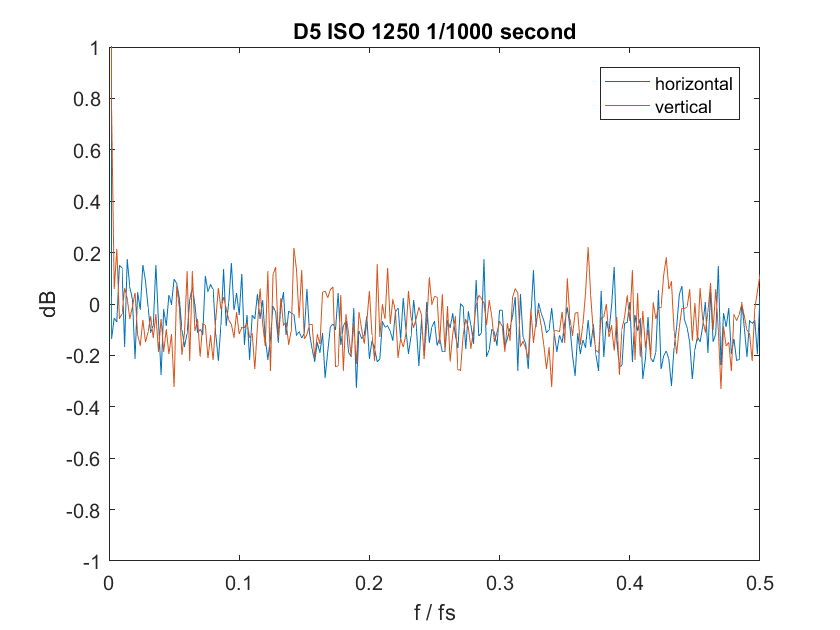
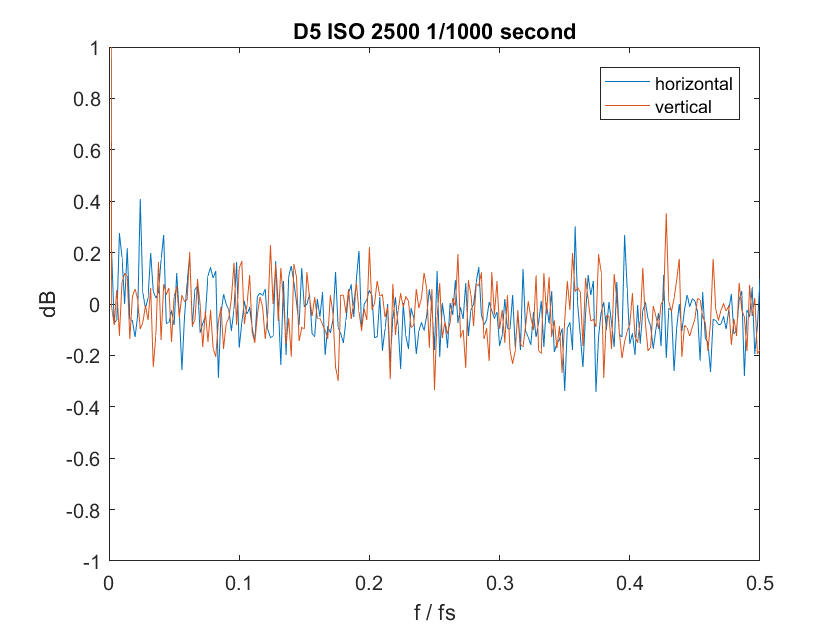
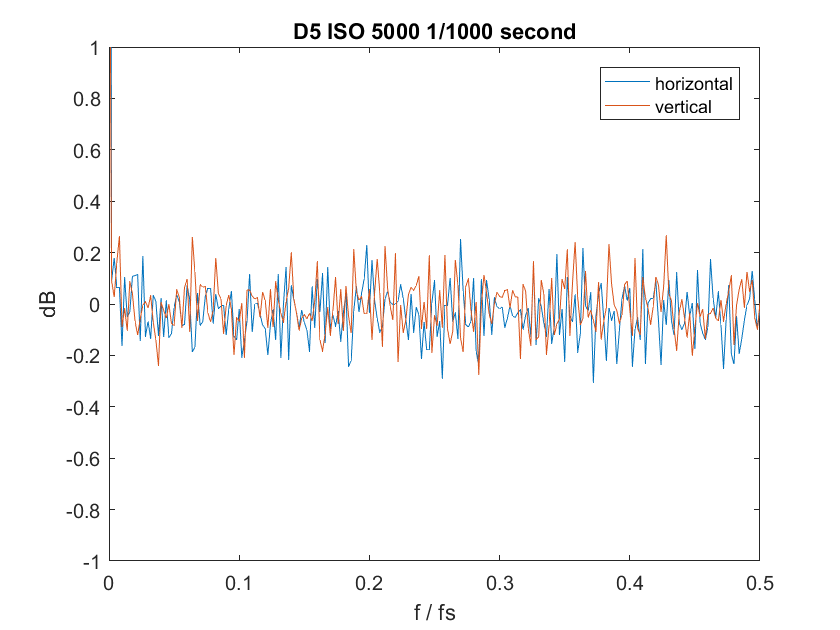
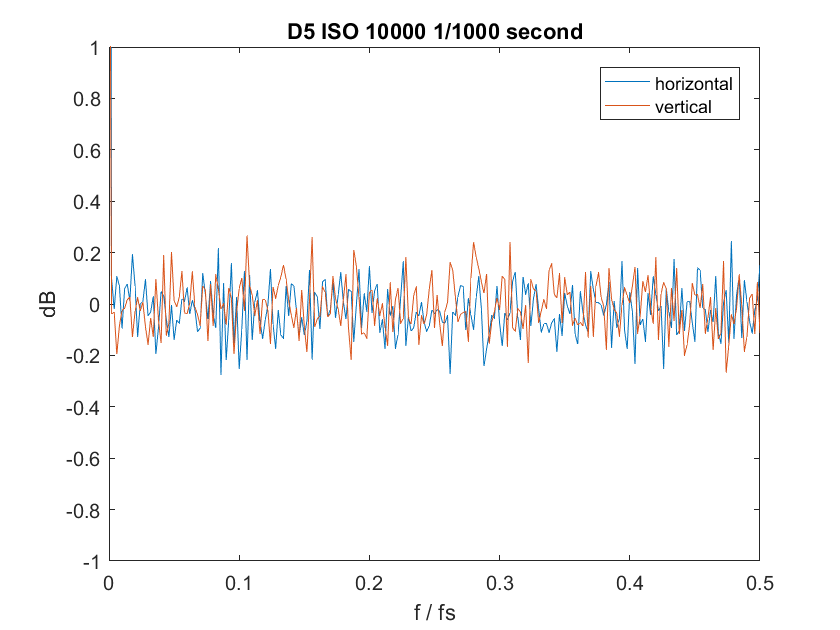
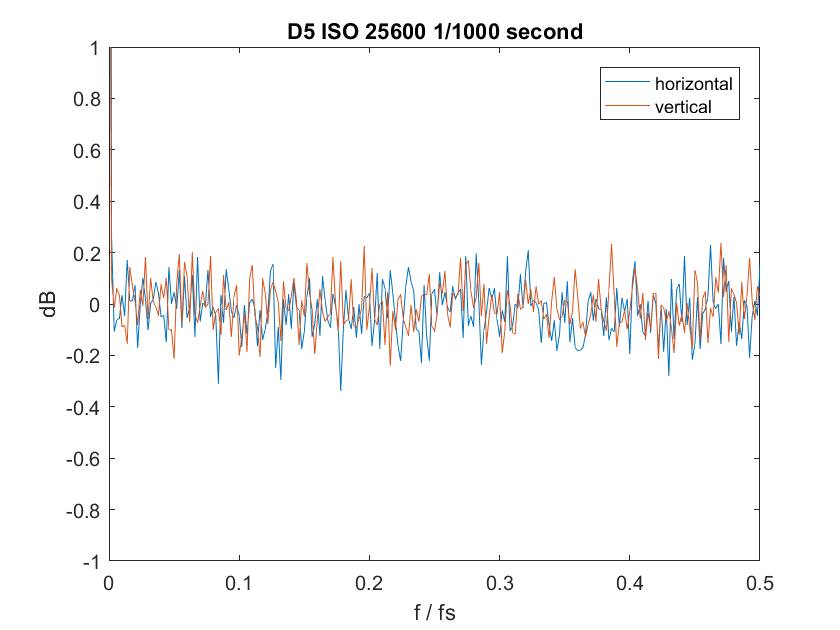
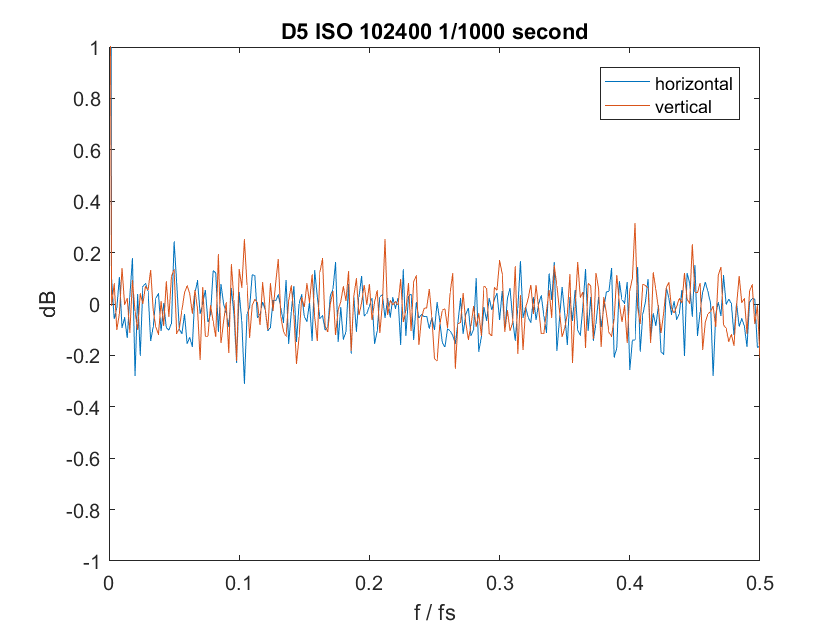
Excellent, good for Nikon.